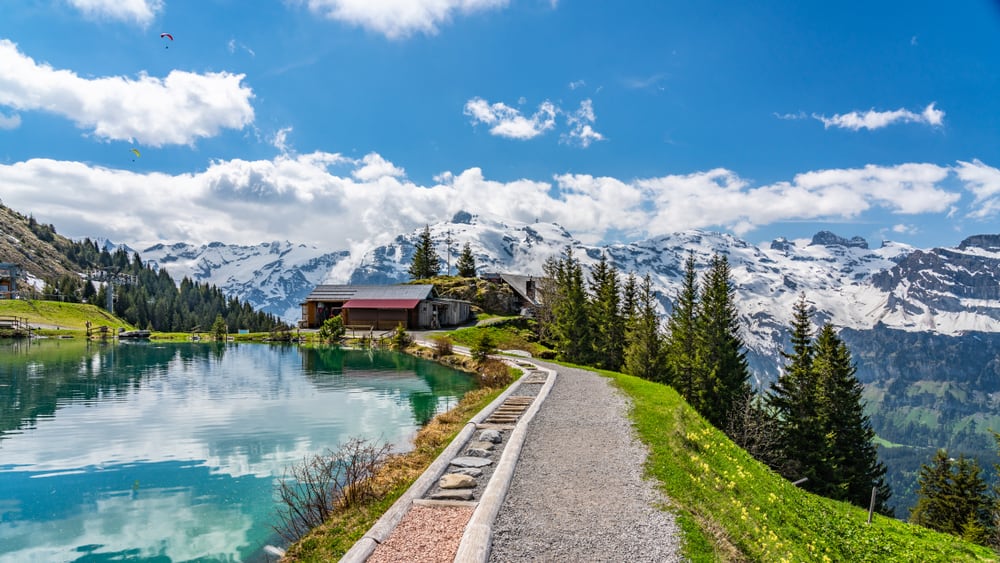In June 2023, a self-funded team of 12 women, under the banner of HER Planet Earth – a non-profit organisation headquartered in Singapore dedicated to gender equality and environmental conservation, will embark on a unique triple-challenge expedition, which will incorporate mountain climbing, biking and stand-up paddle boarding across one of Europe’s most stunning destinations, Switzerland.
This will include summiting an alpine peak at close to 3,000m in the Furka Pass, biking 100km across mountainous areas and crossing an icy lake on SUP boards. The objective of the expedition is to raise awareness and funds for one of the most under-funded humanitarian crises in the world: the Rohingya refugee emergency. The team will aim to raise a total of $50,000 USD to support a UNHCR Environmental programme in Bangladesh which includes reforestation, human-elephant contact management and youth-led climate action training activities.
HER Planet Earth, now in its sixth year of operation, raises awareness and funds via expeditionary travel across the globe. Pioneering in nature, the group’s initiatives champion organisations and programmes that work directly with underprivileged women and youth affected by climate change, empowering them to advance their lives and communities. Past HER Planet Earth expeditions have taken all-female teams to remote islands in the Philippines, mountains in Antarctica, across the Arctic Circle Trail of Greenland and to the largest caves in the world in Vietnam.
Why Bangladesh?
Rohingya refugees fled the violence in Myanmar at a staggering rate in 2017 – and the numbers keep growing. Bangladesh is home to Kutupalong – the largest and most densely populated refugee settlement in the world. The series of camps that make up the settlement were carved out of the forest in southern Bangladesh in 2017 to shelter hundreds of thousands of Rohingya refugees fleeing violence in western Myanmar’s Rakhine State.
Bangladesh is extremely vulnerable to the impacts of climate change. Many of the refugees’ makeshift shelters, are built on deforested, unstable hillsides, providing little protection against tropical storms of increasing intensity. Last year alone, flooding and landslides forced some 24,000 refugees to abandon their homes.
Climate action initiatives have long been a priority for UNHCR. The reforestation intervention alongside efforts to clear and restore waterways and improving drainage systems has helped reduce the adverse effects of flooding in the Bangladesh camp. Plans to further restore the local ecosystem, stabilize hillsides and reduce carbon emissions will require more time and funding. It is important to note also that through proper guidance and training, the youth, majority of whom are girls, in these settlements are championing efforts to regreen the camps and to raise awareness about the impacts of the climate crisis. Whenever possible, these youths educate their family, friends, and neighbours about the importance of protecting trees and local wildlife that wanders into the camp.
The refugee site lies along one of Asian elephants’ main migratory routes between Myanmar and Bangladesh. Behaviorally, elephants always follow their traditional routes and corridors for regular movement. If they find any obstacles within it, they try to break it. They may also charge when they feel threatened and can be terrifying to those who encounter them. Since 2017, 14 people have died due to contact with elephants. To mitigate this issue, UNHCR and its partners have trained over 884 refugees and host communities to understand how to deal with elephants when they enter the camps.
“The devastating impacts of climate change may both trigger displacement and worsen living conditions for those who have already been displaced. We must engage in climate change mitigation and adaptation strategies to mitigate future protection needs and prevent further climate caused displacement. Partners like HER Planet Earth not only help us to amplify our message about the importance of climate action, but they also help us to mobilise much needed resources in support of our cause. The Rohingya crisis is one of our most underfunded situations globally so the support from HER Planet Earth could not have come at a better time,” said Ann Moey, Partnerships Lead, Singapore, UNHCR.
The Team’s Journey
For this expedition – HER Planet Earth’s tenth to date – the team will begin the journey from Lugano and cycle from Coglio-Castlerotto, heading up through the small villages of Malcontone and Arosio. Following this, the women will start their descent from Arosio and wind their way around the 19-hairpin bends to Agno, on the shores of Lake Lugano. The next day the team will hike in Ticino in one of the most spectacular regions of the Western Alps, from Monte Lema to Monte Tamaro. They will continue the next few days, on bikes to reach the Gotthard Pass, before continuing to Andermatt. In the last few days, the women will attempt to summit Chli Bielenhorn peak at 2,940m part of the iconic Furka Pass, which is the most scenic and breath-taking winding road in the Swiss Alps with stunning views of deep valleys, small Swiss villages, and twisting hairpin turns to the oldest glacier in the Alps. This expedition will be challenging because of the complexity of the challenge and involves hiking and mountaineering on rock, snow, and ice. Finally, the team will stand up paddle board across Lake Brienz ride on bikes from Interlaken to the Lauterbrunnen valley.
“HER Planet Earth’s objective is to inspire people to go beyond their comfort zones, families, and homes for a certain period, while pushing their limits to rally support for a worthy cause. At the core of our culture is a commitment to empower underprivileged people, a passion for adventure and a deep respect and love of nature. HER Planet Earth seeks to take participants on pioneering expeditions around the world, so that they can make new discoveries, flourish as individuals, but most importantly, contribute to society. The team hopes to bring international attention to the need for societies, governments, and corporations to get involved and help support climate action and women empowerment,” shared HER Planet Earth Founder and CEO, Christine Amour-Levar.

